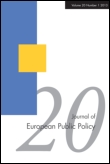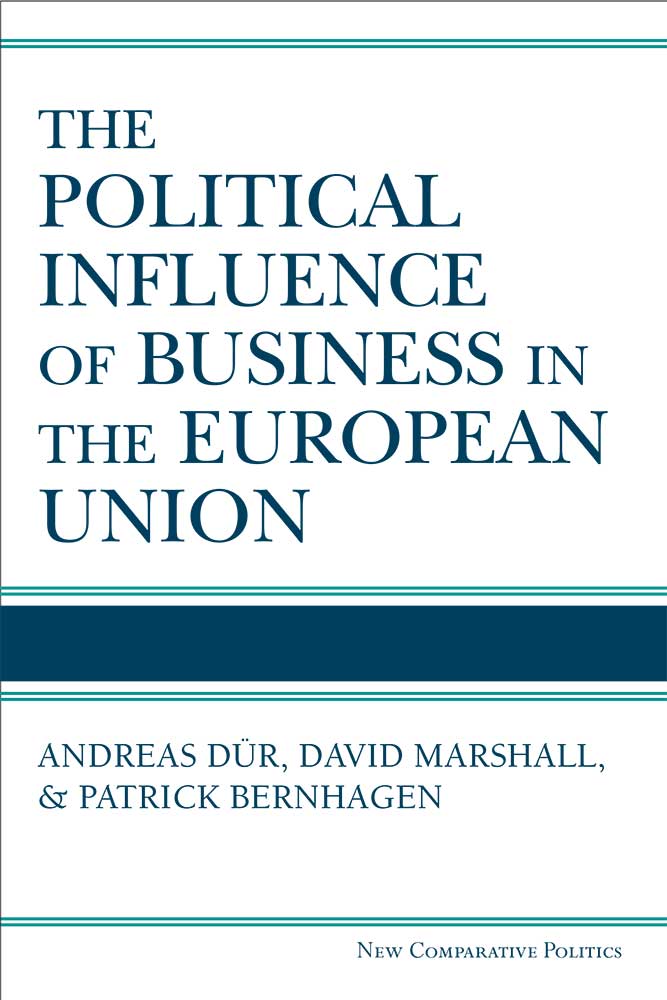By providing information and other input to the policy process, interest groups can improve the quality and legitimacy of EU decision making. At the same time, the access to decision-makers can be used to advance their own interests. Who are these interest groups? How do they organize? How much influence do they have? The main purpose of INTEREURO was to get a more comprehensive theoretical and empirical understanding of the role that interest groups play in the European polity. To a large extent, the efforts of the INTEREURO-project have been directed to building the large, integrated dataset on lobbying in the EU. The project was funded by the European Science Foundation and several national foundations. An overview of all the data-collection projects as well as the overall methodological and theoretical underpinnings has been published in a special issue of Interest Groups & Advocacy.
Key publications
West European Politics Special Issue, vol 40, issue 5

Comparative and EU interest group studies are marked by a progression towards theory-driven, large-N empirical studies in the past 20 years. With the study of national interest organizations in EU policy-making, the West European Politics Special Issue special issue puts a theoretically and empirically neglected topic in this research field centre stage. The individual contributions include interest group characteristics, institutional contexts as well as issue contexts as explanatory factors in their empirical analyses of multilevel interest representation. This Special Issue of West European Politics (2017, vol 40, issue 5) edited by Rainer Eising, Daniel Rasch, and Patrycja Rozbicka presents novel developments in the study of political alignments among interest groups and political institutions, the Europeanization of domestic interest organizations, and the question of bias in interest group populations. Thereby, they do not only contribute to the comparative study of interest groups, but also to the analysis of policy-making, multilevel governance, and political representation in the EU.
Journal of European Public Policy Special Issue, vol 22, issue 4

The aim of this Special Issue of the Journal of European Public Policy is to investigate the contextual nature of EU-level lobbying. The issue is edited by Heike Klüver, Caelesta Braun, and Jan Beyers. The various contributions by leading scholars in the field explore how characteristics of concrete policy issues and the institutional context in which interest groups operate affect lobbying activities and the ability to influence EU legislative outcomes. A large number of interest group studies, in the EU and elsewhere, has traditionally focused on the characteristics of individual interest groups such as their financial resources, their organizational characteristics or their policy expertise. Much less attention has been paid to institutional and issue-specific contextual factors that affect interest group lobbying in the EU. While most studies of EU legislative politics have studied the EU institutions (Council, Parliament, Commission) and EU-level parties, almost no systematic and quantitative research has been conducted on how interests groups mobilize during and influence EU legislative policymaking processes. This Special Issue fills this defect in our knowledge by theorizing and empirically analyzing the impact of contextual characteristics – more in particular the issue-specific nature of lobbying and the institutional setting in which lobbying takes place – on interest group politics in the EU.
The Political Influence of Business in the European Union, 2019

Many citizens, politicians, and political activists voice concern about the political influence of business in the European Union. But do business interests really pull the strings in Brussels? Contrary to expectations, this book shows that business interests are no more influential than other interests in shaping contemporary EU policies. Andreas Dür, David Marshall, and Patrick Bernhagen present an original argument that stresses the role of public actors in facilitating or impeding interest groups’ lobbying success. Novel data on a large number of legislative proposals on the EU’s agenda and three case studies present strong support for this argument. The Political Influence of Business in the European Union offers new insights into how lobbying success depends on the demand and supply of information, as well as new ideas on how to measure lobbying success. The book advances a fresh perspective on the question of business power and shows why business interests often lose in the policy struggle.
